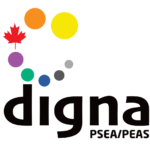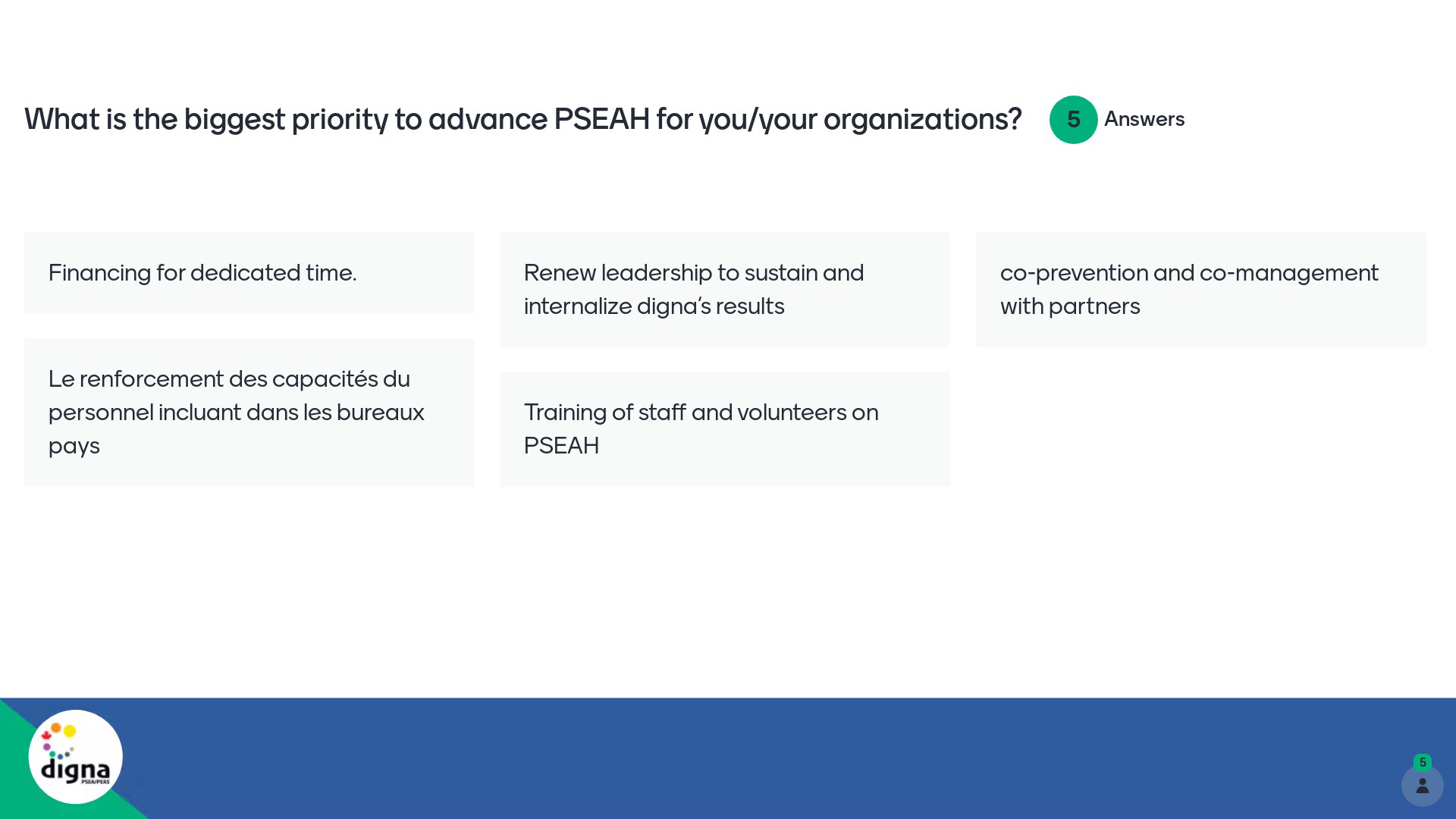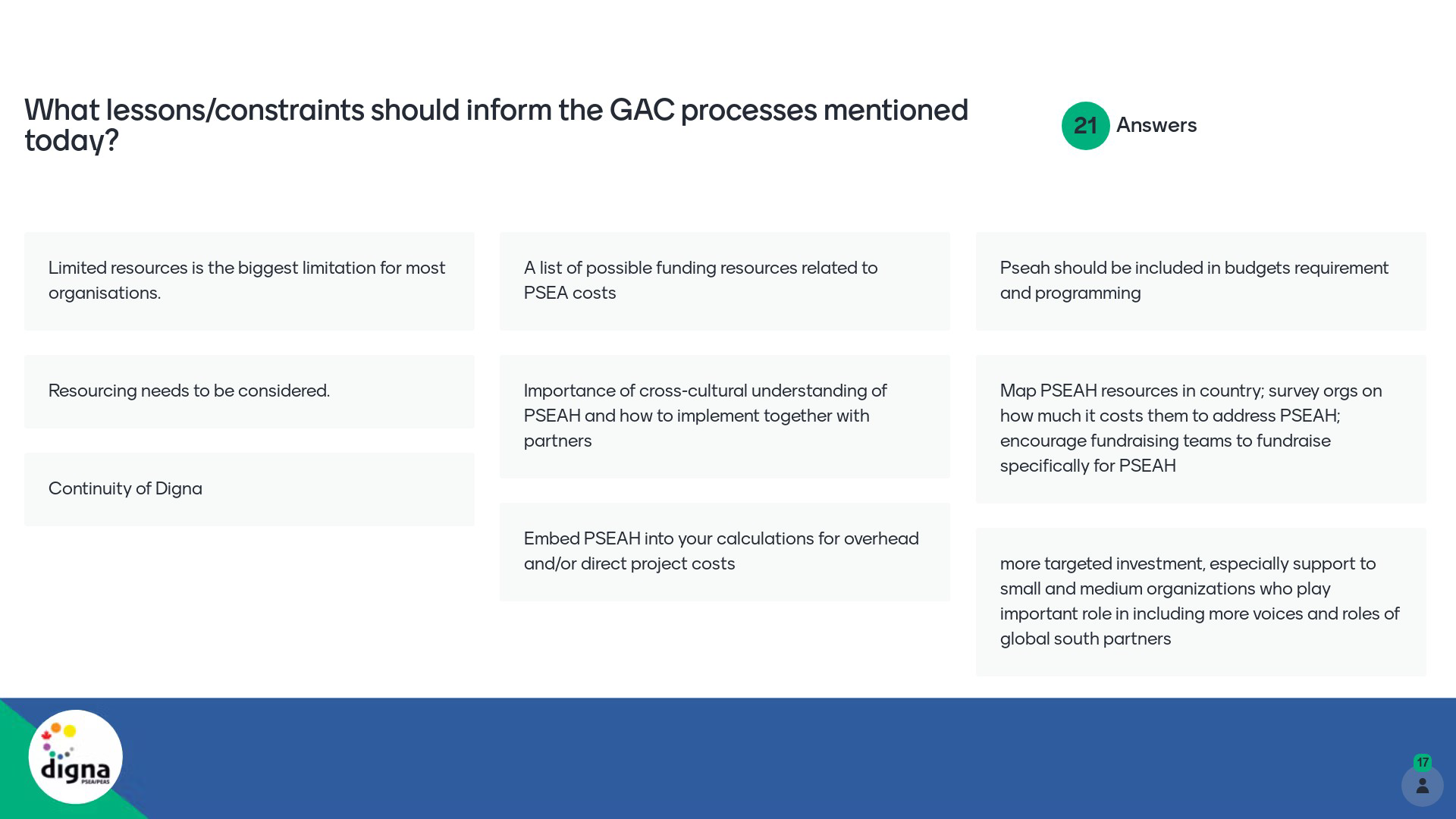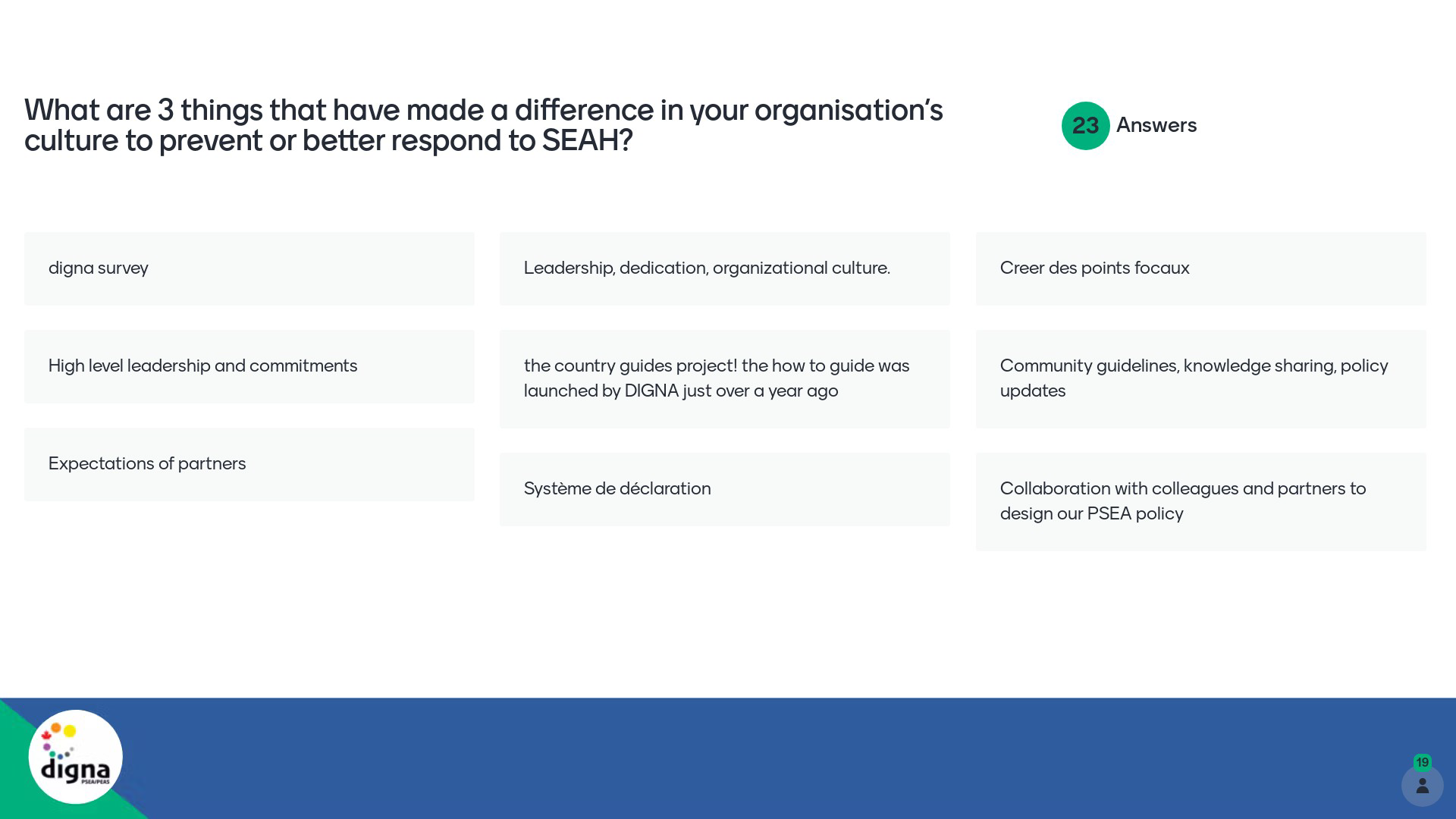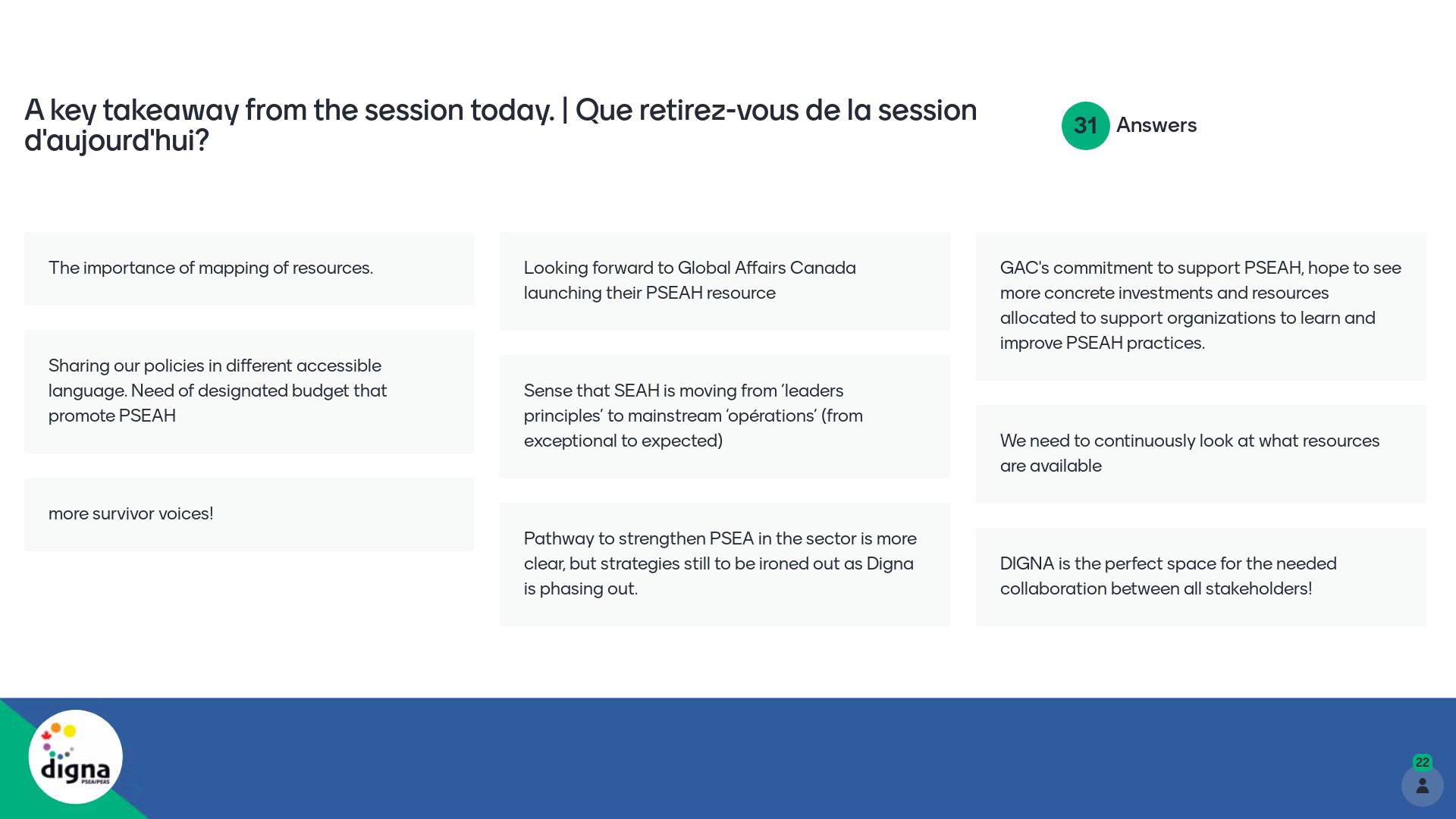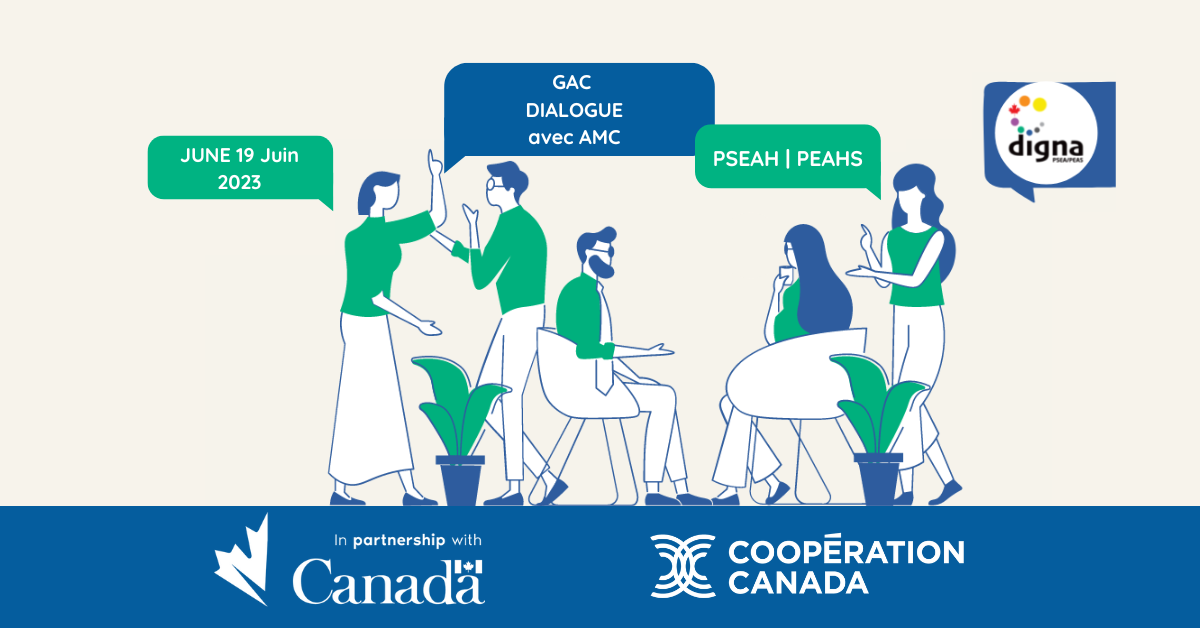
About the Dialogue
On June 19, 2023, Digna and Global Affairs Canada (GAC) organized a virtual dialogue aimed at strengthening collective action and regaining momentum towards the Prevention of Sexual Exploitation, Abuse, and Harassment (PSEAH) within the Canadian international cooperation sector.
The conference brought together sector leaders, government officials, and PSEAH champions to address the urgent challenges associated with PSEAH. The participants engaged in discussions on how our sector can collaborate effectively to prevent and address instances of sexual exploitation, abuse, and harassment.
In conversation: Canada and PSEAH
Fanta Diaby, Digna’s Program Manager, opened the Dialogue with a land acknowledgment and a recognition of the ongoing and critical issue of missing and murdered Indigenous women and girls, particularly in the context of preventing sexual exploitation, abuse, and harassment (PSEAH). The opening remarks, delivered by Shannon Kindornay, COO of Cooperation Canada, and Stuart Savage, Director General for Engaging Canadians at GAC, were followed by an engaging fireside chat focused on global challenges related to PSEAH. Each panelist had the opportunity to respond to several thought-provoking questions concerning key issues in the sector. These questions included discussions on recent progress in PSEAH, Canada’s contributions to addressing global challenges in this field, the primary obstacles faced by the sector, and crucial next steps for advancement. The informative session concluded with an interactive Q&A segment.
Quotes

“…We are happy to work in a collaborative manner to be able to find an effective and sustainable way for financing and resourcing [PSEAH], and to be able to have PSEAH measures properly implemented.”
Hélène Hage
PSEAH Unit,
Global Affairs Canada
“While there are important steps forward to be underlined, our organizations are asked to do a lot in terms of PSEA with very little resources. That’s why we need to ensure adequate and durable funding for PSEAH to ensure a long-term impact of all the great initiatives and tools that are being developed and implemented now.”
Michaël Arnaud
Digna Advisory Committee Co-Chair,
Executive Director of EGIDES


“…. We need to think about [PSEAH] in a way that helps us put in place sustainable practices so that it is not only dependent on an influx of resources. This needs to be part of a default approach.”
Yvona Tous
Senior Policy Advisor, UN Division
Global Affairs Canada
Exploring Current Trends and Advancing Next Steps in PSEAH
The session commenced with a presentation by Emmanuel Galleguillos-Côté, Digna’s Research Assistant, who shared the key findings from Digna’s comprehensive 3-year review, conducted with data from Digna’s Organizational Assessment Tool. This presentation provided valuable insights into the progress different organizations have made and areas of improvement.
Following the presentation, Minh-Tien Nguyen, PSEA Unit Manager at GAC, offered reflections on the intersections for Prevention of Sexual Exploitation, Abuse, and Harassment (PSEAH) within GAC processes, including the transformations initiative. Minh-Tien provided an overview of the current expectations for partners and highlighted the opportunities for consultation. These reflections shed light on the ways in which GAC is actively engaging with PSEAH issues and emphasized the importance of collaboration and dialogue in addressing them effectively.
Key Takeaways
Key insights from the rich and insightful discussions that took place included:
- Emphasizing the importance of sustained forums for discussion between Civil Society Organizations (CSOs) and the Canadian government to ensure the momentum is not lost on addressing PSEAH.
- Recognizing the necessity of applying PSEAH principles with an intersectional approach to account for the diverse experiences and needs of individuals and communities.
- Highlighting the significance of contextual understanding and the development of tools and local resource lists specific to each context, supporting investigators and resource groups working with survivors.
- Recognizing the importance of providing programmatic and budgetary space for organizations to implement and integrate PSEAH effectively in their projects.
View the Jamboard
Current needs and future opportunities
Throughout the discussions, participants were engaged and shared their perspectives regarding the key priorities within the sector, their specific areas of emphasis and need, the existing resources at their disposal, as well as the resources that are still required.
Please find below some direct inputs from the discussions for your reference.
